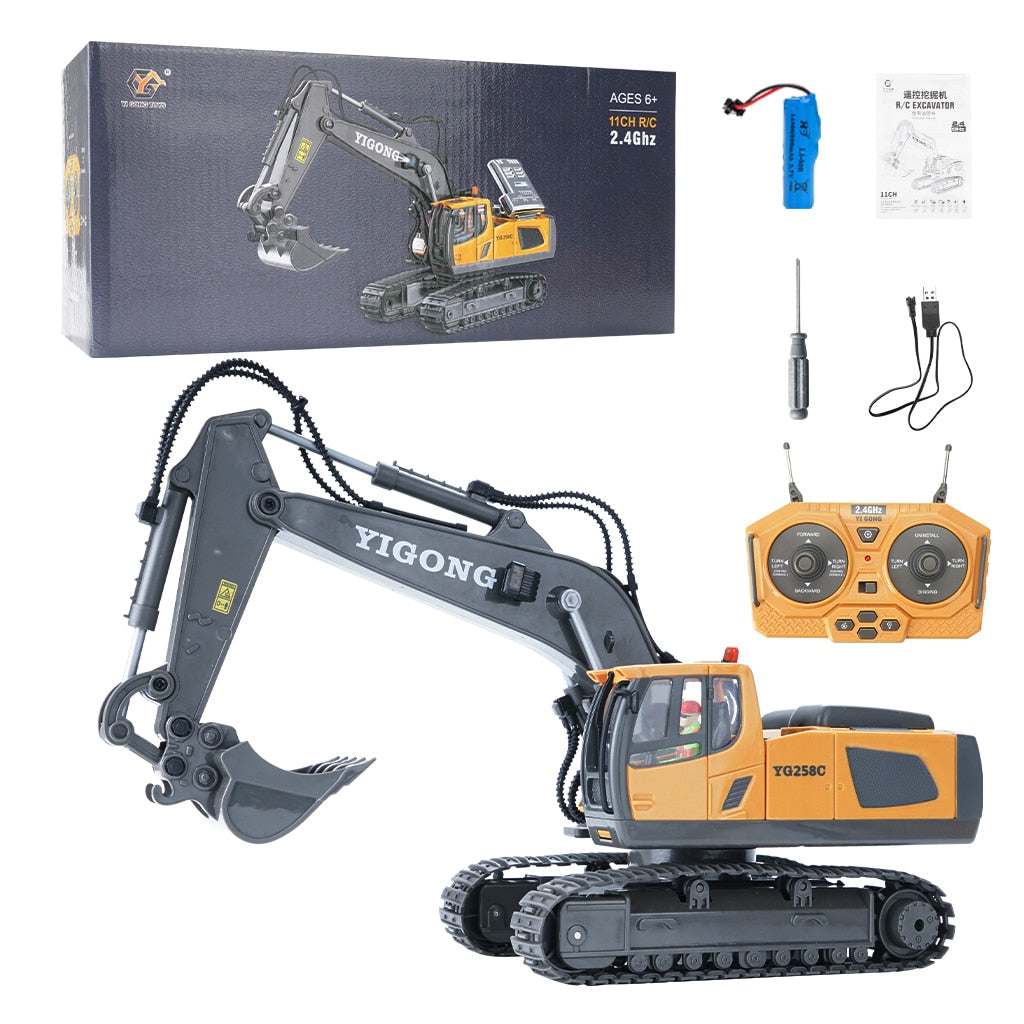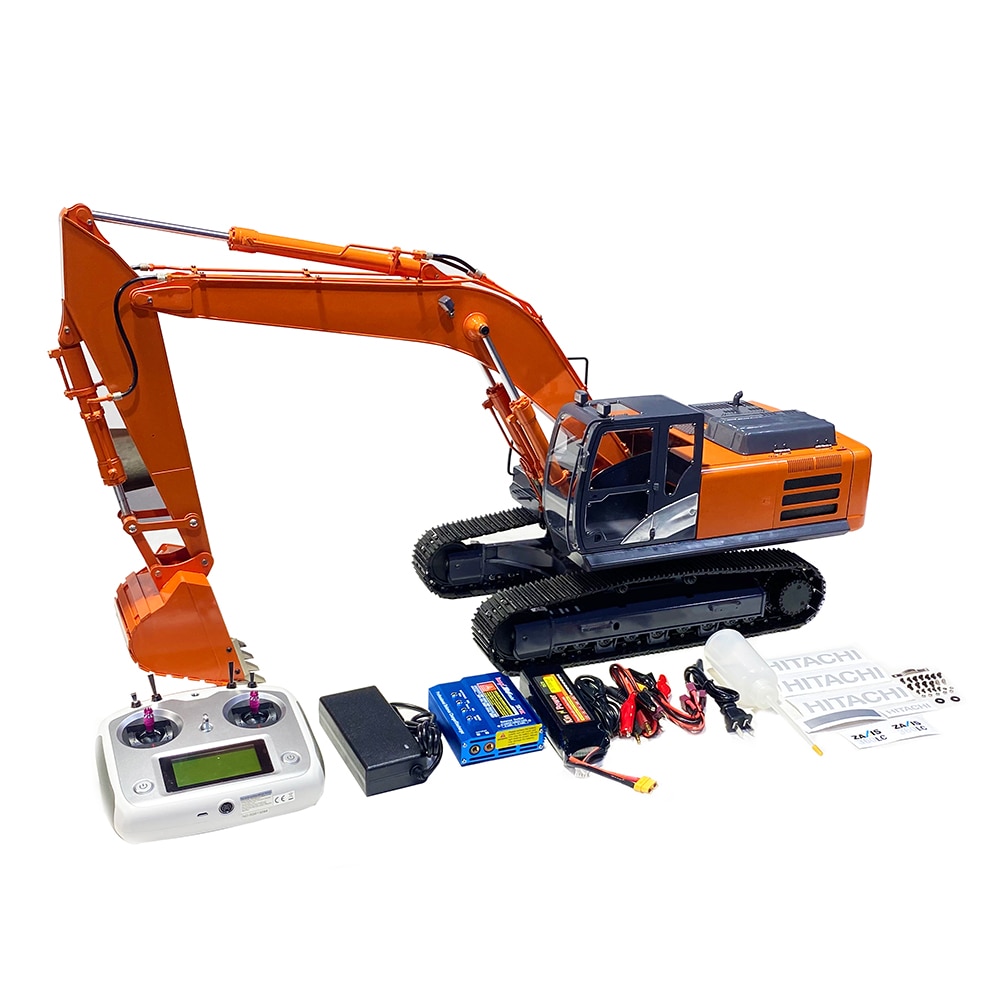Understanding Exactly How Excavator Works and Its Influence On Efficiency
Excavators play an important duty in building and construction and mining procedures, counting on a complicated interplay of mechanical and hydraulic systems. Their capacity to execute a selection of tasks hinges on both their design and the modern technology incorporated within. Comprehending these components can substantially impact functional performance and efficiency. As innovations remain to improve the sector, one should take into consideration exactly how these adjustments will affect future practices and performance.
The Basics of Excavator Mechanics

The Duty of Hydraulic Systems in Excavators
At the heart of excavator operation lies the hydraulic system, which plays an essential duty in powering the equipment's features and movements. This system uses pressurized hydraulic liquid to transfer energy, allowing numerous actions such as excavating, moving, and training. By using the principles of hydraulics, excavators can carry out tasks with exceptional accuracy and pressure, boosting overall functional efficiency.The hydraulic system is composed of vital parts, consisting of valves, pumps, and cylinders, which function with each other to manage the flow and direction of the liquid. When the driver engages the controls, the hydraulic fluid is guided to certain cyndrical tubes, converting the driver's commands right into physical activity. This system enables responsive and smooth actions, which are crucial in construction and excavation environments. double e volvo rc excavator. The efficiency of the hydraulic system straight affects the efficiency and flexibility of the excavator, making it an important component in modern-day excavation procedures
Secret Components of an Excavator
Understanding the crucial elements of an excavator is necessary for grasping exactly how this powerful maker runs. An excavator contains several considerable components, consisting of the undercarriage, house, arm, container, and boom. The undercarriage supplies stability and mobility, often including tracks or wheels to browse different surfaces. Your house has the engine and hydraulic systems, enabling the driver to control activity and power the maker. The boom extends from your house, allowing upright reach, while the arm links to the bucket, assisting in digging and training operations.Additionally, the cab houses the driver, geared up with controls for specific maneuvering. Each of these parts plays a crucial role in the excavator's general functionality, adding to its efficiency and performance on construction sites. Comprehending these components helps in preserving and maximizing excavator performance, making sure tasks are finished securely and successfully.
Attachment Convenience and Its Benefits
Accessory convenience is an important facet of excavators, allowing drivers to switch over in between numerous devices customized for details jobs. This adaptability not only boosts work efficiency however likewise adds to cost-effectiveness by reducing the requirement for several equipments. Understanding the different types of accessories available can greatly affect the general efficiency and capability of an excavator on work websites.
Kinds of Add-ons
While excavators are mainly identified for their excavating abilities, their real flexibility lies in the vast range of attachments offered. These add-ons boost the excavator's functionality, enabling it to execute various tasks beyond excavation. Common accessories consist of pails (for excavating and scooping), hydraulic thumbs (for understanding products), and augers (for piercing holes) Grapples are used for dealing with and relocating debris, while rippers can break up hard surfaces. Other specialized accessories, such as plates and rakes, make it possible for excavators to adapt to certain work needs. This diversity not just boosts the device's utility throughout various markets, including landscaping, demolition, and building, however additionally enables drivers to tailor their tools to meet certain task demands efficiently.
Raised Task Performance
Making best use of task efficiency is a main advantage of making use of different excavator attachments. Various accessories allow an excavator to do multiple jobs without needing to switch devices, conserving important time and labor. Making use of a hydraulic hammer can damage concrete while a bucket accessory can dig deep into dirt, making it possible for a seamless process. This adaptability lowers downtime associated with devices modifications and boosts productivity on-site. Additionally, specialized add-ons improve precision in tasks such as grading or landscape design, bring about better outcomes. The capability to adjust to numerous work needs not just streamlines operations but additionally decreases the need for additional machinery, guaranteeing that tasks are completed quickly and effectively. In general, attachment flexibility substantially adds to raised work effectiveness in excavation work.
Cost-Effectiveness and Adaptability
Cost-effectiveness is a significant benefit of using functional excavator add-ons. These add-ons enable a single excavator to execute several tasks, lowering the requirement for added machinery and labor - double e volvo rc excavator. By switching over between pails, hammers, and grapples, operators can tackle various jobs, from digging to demolition, thus making the most review of devices usage. This flexibility not only reduces operational prices however also minimizes downtime connected with altering equipment. In addition, the ability to tailor excavators with specialized add-ons improves productivity, as they can efficiently take care of diverse jobs according to project needs. To wrap up, the mix of cost-effectiveness and adaptability in excavator accessories contributes to boosted operational efficiency and source allocation in building and construction and excavation jobs

Advanced Modern Technology in Modern Excavators
Modern excavators are significantly furnished with sophisticated technology that transforms excavation procedures. Automation enhances operations, while enhanced gas effectiveness decreases functional expenses. Additionally, clever control systems boost precision and safety and security, marking a significant advancement in excavation devices.
Automation in Excavation Processes
As excavation technology advances, automation has become an essential element in enhancing efficiency and accuracy on task sites. Modern excavators are furnished with innovative automated systems that help with tasks such as grading, excavating, and trenching with very little operator treatment. These systems utilize sensing units, GPS, and artificial intelligence algorithms to ensure precise placing and depth control, greatly reducing the margin for mistake. Furthermore, automation permits drivers to concentrate on critical decision-making as opposed to hand-operated controls, leading to boosted efficiency in general. Such technologies not just improve operations however additionally enhance security by decreasing human error in complicated procedures. Subsequently, the integration of automation in excavation processes stands for a considerable improvement in building and construction technology, driving the market in the direction of greater effectiveness and performance.
Enhanced Gas Performance
Developments in technology have actually additionally led to significant enhancements in fuel effectiveness for contemporary excavators. Modern devices are furnished with advanced engines that optimize power output while reducing gas intake. These engines make use of cutting-edge burning modern technologies, such as turbocharging and straight gas injection, to improve performance and efficiency. Additionally, light-weight materials in construction reduce total weight, permitting for much less energy expenditure during procedure. The intro of variable speed controls enables drivers to readjust engine performance according to particular tasks, better decreasing fuel use. Consequently, these improvements not just lower operational prices however likewise contribute to ecological sustainability by minimizing discharges. Overall, boosted fuel efficiency in excavators is an important growth that strengthens efficiency and financial stability in the building industry.
Smart Control Equipment
While operators browse progressively complex work sites, clever control systems in excavators have actually emerged as essential devices for enhancing performance and precision. These innovative innovations make use of sensors and formulas to keep an eye on various criteria such as load weight, surface problems, and operational efficiency. By immediately readjusting hydraulic functions, clever systems optimize maker performance, causing improved efficiency and lowered wear on elements. Additionally, operators gain from intuitive interfaces that give real-time comments and diagnostics, permitting informed decision-making. This combination of modern technology not only enhances procedures but likewise reduces human mistake, adding to much safer workplace. As the construction market proceeds to develop, wise control systems will play an important role in shaping the this post future of excavator performance and performance.
Enhancing Operational Performance With Excavators
Excavators play a necessary function in enhancing functional efficiency across different building and construction and excavation jobs. Their convenience permits numerous tasks, consisting of digging, material, and lifting handling, which enhances process and minimizes the requirement for extra devices. With powerful hydraulic systems, excavators can carry out heavy-duty tasks with precision, considerably reducing the time required to full tasks. The assimilation of innovative innovation, such as GPS and automated controls, even more optimizes their procedure, making it possible for drivers to accomplish greater precision and minimize material waste. Additionally, modern-day excavators are created to eat much less fuel and minimize exhausts, adding to both expense savings and ecological sustainability. By using excavators efficiently, construction groups can improve productivity, fulfill task due dates, and improve total site management. This multifunctionality and performance make excavators vital visit here tools in the modern-day building landscape.
The Future of Excavators in Construction and Mining Industries
As the building and construction and mining markets develop, the future of excavators is positioned for considerable makeover driven by technical innovation and transforming operational needs. Advancements in automation and expert system are improving excavator abilities, enabling improved accuracy and efficiency in operations. Independent excavators are emerging, minimizing the need for human intervention and decreasing the risk of accidents.Moreover, the combination of telematics and IoT modern technology makes it possible for real-time tracking of equipment performance and anticipating maintenance, enhancing uptime. Eco-friendly styles, consisting of electric and hybrid versions, are gaining traction, lining up with sustainability objectives within the industry.Additionally, making use of innovative products and lighter designs improves gas performance while maintaining performance requirements. As these fads progression, excavators will play an important duty in meeting the boosting needs for performance and safety in building and mining, inevitably changing functional landscapes.
Often Asked Questions
How Do Weather Impact Excavator Efficiency?

Climate problems considerably affect excavator efficiency, as rainfall and mud can impede traction and stability, while extreme temperatures might affect hydraulic systems. Operators should adapt to these variables to ensure optimal performance and security during operations.
What Precaution Should Operators Adhere To While Making Use Of Excavators?
Security steps for excavator drivers include wearing proper personal safety equipment, performing pre-operation assessments, ensuring appropriate interaction with ground workers, keeping a risk-free range from above threats, and adhering to well-known operational procedures to avoid mishaps.
How Usually Should Excavators Be Preserved for Optimum Performance?
Excavators need to be maintained on a regular basis to guarantee peak performance, commonly every 250 operating hours or as specified by the producer. Regular checks boost integrity, prevent unforeseen breakdowns, and prolong the life-span of the equipment.
What Is the Typical Life-span of an Excavator?
The average life expectancy of an excavator commonly ranges from 10,000 to 15,000 hours of operation. Aspects affecting longevity include upkeep techniques, operating conditions, and the high quality of the equipment itself, impacting overall efficiency and performance.

Can Excavators Operate on Irregular Surface Effectively?
Excavators can operate successfully on irregular terrain because of their verbalized layouts and flexible tracks. These attributes allow them to preserve security and grip, making it possible for reliable operation in challenging atmospheres frequently run into in building and construction and landscaping projects. Each of these components plays an essential function in the excavator's general functionality, adding to its performance and effectiveness on building websites. Taking full advantage of work efficiency is a primary advantage of making use of various excavator attachments. While operators navigate significantly intricate job sites, wise control systems in excavators have actually arised as essential tools for improving performance and precision. Excavators play a crucial role in improving operational effectiveness throughout numerous building and excavation tasks. Advances in automation and man-made knowledge are improving excavator capacities, allowing for improved accuracy and performance in procedures.